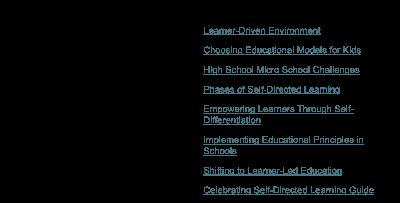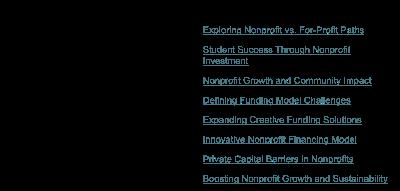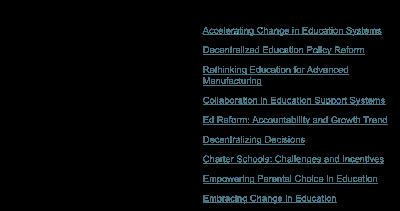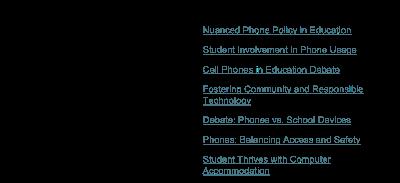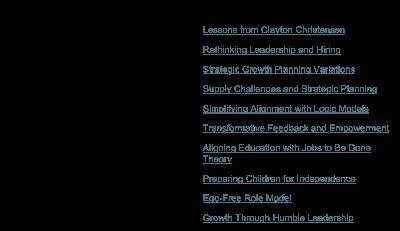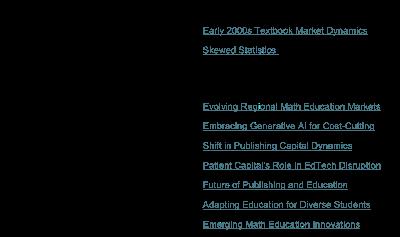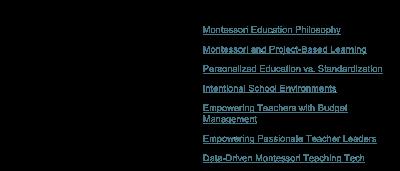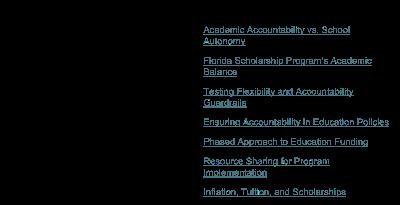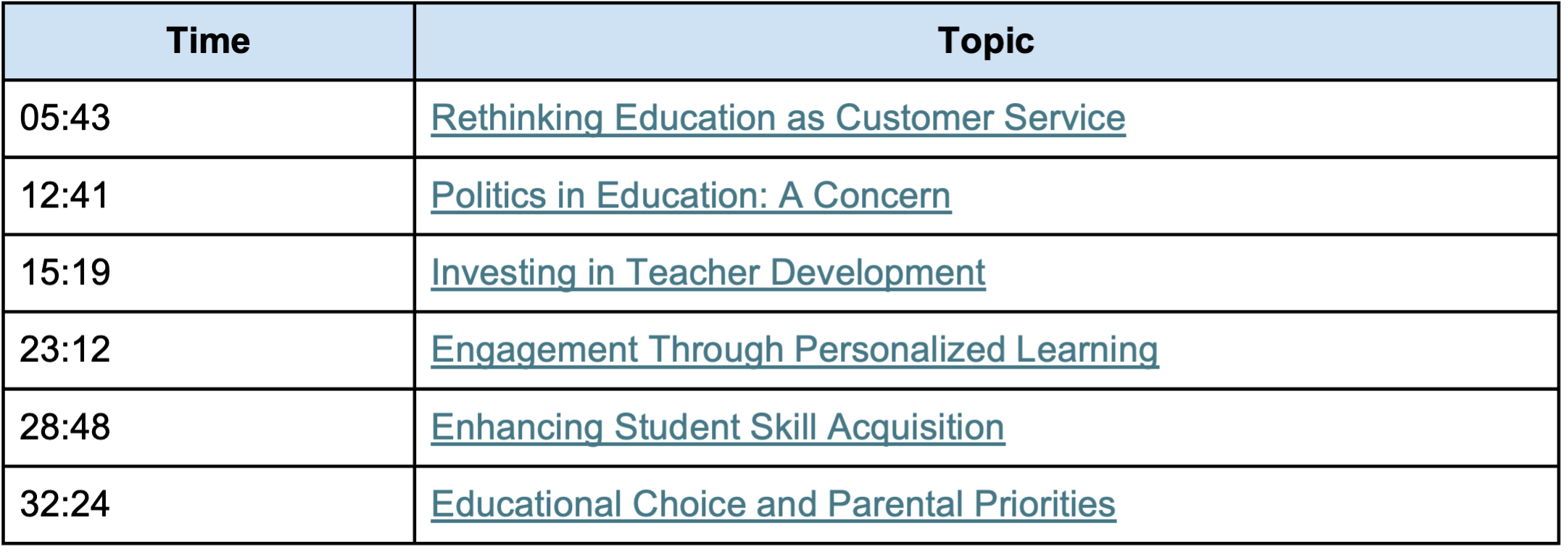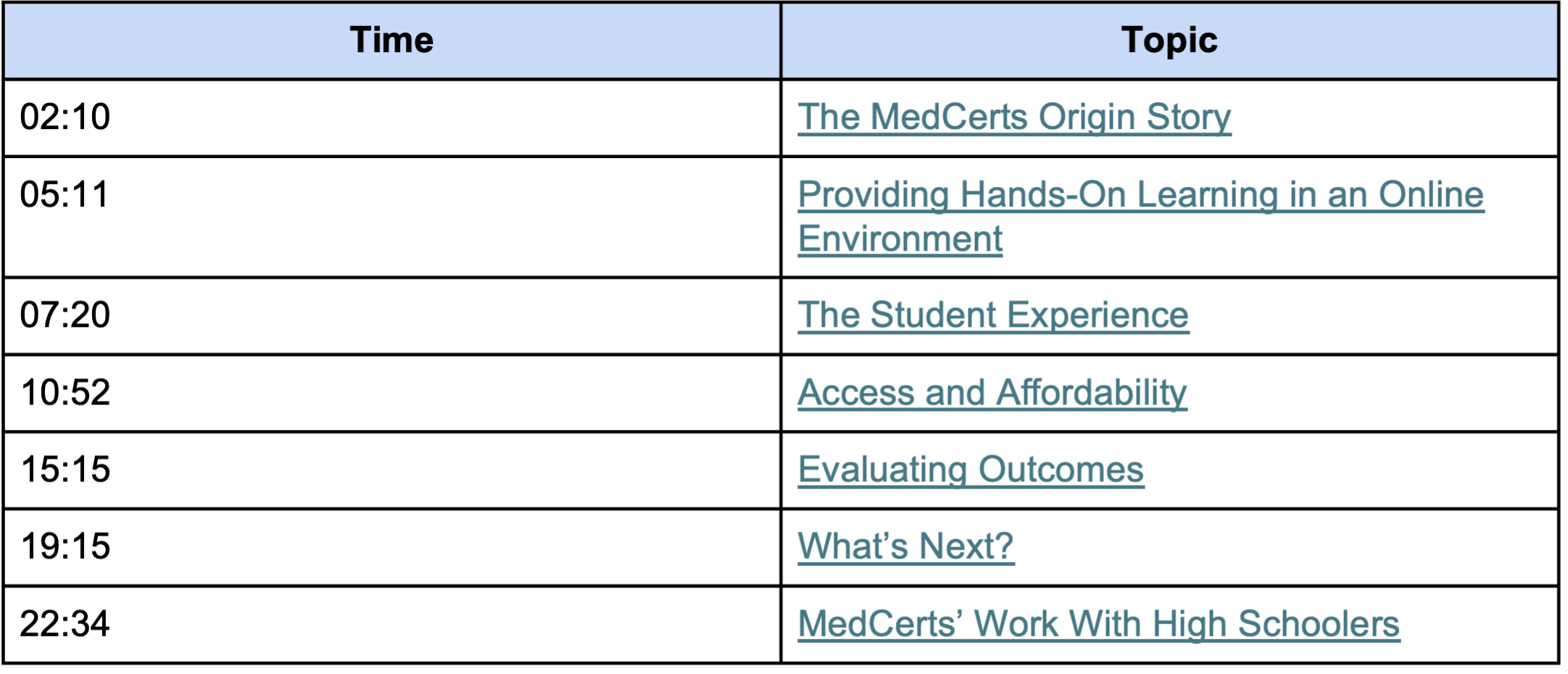Tyler Thigpen on Self-Directed Learning
Description
Tyler Thigpen wears a lot of hats. He’s the co-founder and head of The Forest School: An Acton Academy in south metro Atlanta; co-founder and head of the Institute for Self-Directed Learning; an instructor and academic director at the University of Pennsylvania Graduate School of Education; and the coauthor of a new book, The Playbook for Self Directed Learning, which provides strategies for transforming traditional schools into learner-centered environments. Tyler joined me to talk about innovative educational models that emphasize self-directed learning. We discussed everything from what is self-directed learning to the nature of his school and from the general philosophy underpinning Acton Academy more generally and his insights into how traditional, existing schools can take his advice to create more self-directed learners. We also talked about why high schoolers might be interested in microschools in this day and age—including why his kids have been. I can’t wait to hear your thoughts on our conversation. Leave us a comment.
Michael Horn
Welcome to the Future of Education. I'm Michael Horn and you are joining the show where we are dedicated to creating a world in which all individuals can build their passions, fulfill their potential and live lives of purpose. And to help us think through how we get there today, I'm delighted that we have a very special guest. His name is Tyler Thigpen. He is known as the head of schools at the Forest School and Acton Academy in Fayetteville, Georgia. We'll hear more about that shortly.
He's also the co founder, executive director at the Self Directed or excuse me, Institute for Self Directed Learning. Going to hear more about that as well. He guest lectures occasionally at Harvard University. I see him in my neighborhood every once in a while. He's also the academic director at the University of Pennsylvania Graduate School of Education. So you wear a lot of hats, Tyler, welcome.
Good to see you. Thanks for being here.
Tyler Thigpen
Thank you, Michael. Delighted to be here. Happy to have the conversation and yeah. Wearing hats as you. As you do. As well, as we do.
Michael Horn
Yeah. Well, as it is. Right. But you also are the author of, a coauthor I should say, of a brand new book, the Playbook for Self Directed Learning. A Leader's Guide to School Transformation and Student Agency. It's out from Routledge. It's on Amazon.
Check it out. We'll drop a link into the show notes and we're going to talk about that as well. I have one caveat. I've bought the book. I own it on my Kindle. I have not yet read it. I'm behind. So you're going to teach me a little bit as we go.
But where I want to start with you, actually Tyler, is with the Forest School and, and Acton Academy because I'll just say, like when I first heard about the Forest School and Acton Academy, I was like, this is the coolest mashup I have ever heard of in my entire life.
It's like outdoors, which I'm a strong believer in getting out into nature and then the personalization and aspects of owning your own learning that Acton Academy is known for. And for those that don't know, Acton Academy is a network loosely held, I guess, of microschools. Several hundred around the world at this point, use technology to help learners sort of follow the hero's journey as they progress through each year. But I want to hear it from you, like, what is this school all about? I have been dying to get down there. I have not seen it in person. I want to know how you blend technology and personalization of an Acton school and forest school, like that sounds magical and maybe mythical.
Tyler Thigpen
I love that. My answer may surprise you, actually. So what I really love about the forest schools around the world, and there are a subset of folks, families, caregivers, educators, you know, who've built and create these schools. You know, the love and engagement with the outdoors. A lot of, you know, very hands on, project based, interdisciplinary, transdisciplinary stuff that, you know, kids are just engaged. I mean, a lot of forest schools, kids are outside, the vast majority, you know, of the time.
Michael Horn
Yeah, it's amazing to watch.
Tyler Thigpen
Incredible. The reason we, and we have, we share a lot of commonality with those schools. So, you know, being outside, in fact, our learners designed our school and they did an architecture quest like four or five years ago and it got built, we moved. We've been in a year and a month. It's incredible. And it includes massively large windows, which were very expensive. It includes a courtyard around which the school sits. This was all choices of the kids.
And they're spending a massive chunk of their time outside every day and learning in nature. And then we exist in a really interesting town where we have connectivity to walking trails and a forest. We're right next to the forest, but we're actually not a forest school. We founded in a town that was called Pinewood Forest and it was right next to the largest movie studios in the United States, Pinewood Studios. It's now called Trilith, the largest movie studio in the world. And by that point we had already had the name for school. So we didn't change our name to be Trilith, but we are in this really interesting place that is kind of a hub for creators, makers and storytellers. So the mythical component, the mysterious component, is definitely there because of being in the ecosystem of innovation and storytelling.
Interestingly, US Soccer just moved its headquarters five minutes down the road from us. So that's providing a really fascinating sports and competition component as well. But yeah, if you were to mesh up the storytelling, the love of outdoors, definitely the transdisciplinary projects and interdisciplinary, the choice, the hands on learning, that is very much our vibe and very much in line with the Acton Academy model where kids, the goal is that each person who enters our doors will find a calling that will change the world. And similar to forest schools, we have guides, you know, rather than teachers, and there's no homework. And we have studios instead of classrooms. And you can go at your own pace. And it's mixed ages. And so in that way it really is kind of mythical and magical.
Learner-Driven Environment
Tyler Thigpen
And honestly when folks visit us, Michael and I do hope you come. When folks visit, one of the most frequent comments we hear and I feel it on a day to day basis is they feel like I can breathe here. You know, it's not a sort of super rigid high environment. There's a lot of learning to live together, going on a lot of exploratory play, a lot of passion projects. And because it's self paced and mastery based, you know, it's very learner driven. So it's not top down where you, where the kids feel like they're on edge, just waiting on the, you know, the adults to tell them what to do. So it's a cool vibe. You know, nothing's perfect but it, but it's, it's really, it's really beautiful and it's a labor of love for me because my kids have been there.
I've got four kids, my oldest daughters aged out. My three boys are still there, one of them is a senior. So you know I get to hug their necks when I go on campus.
Michael Horn
So it goes all the way through high school. Give us the sort of the tale of the tape, you mentioned U.S. soccer is nearby so give us the stats if you will for the school. When, when was it founded, how many students, how many guides? You know, sort of the picture of what, of what we're talking about.
Tyler Thigpen
Yep. So the Forest School and Acton Academy founded in 2018 with 31 learners, today and that was grades roughly 2 through 8 and today we are 162 learners. We are at capacity that's pre K3 through grade 12. And so we've graduated a number of alumni know out into now the marketplace as well as colleges and universities. And it's diverse by design so we're trying to maximize economic, racial, age, gender, religion, school background and learning differences, diversity. We want to show that self directed learning works for all kids and staff. We have about 16 full time staff there and then we during COVID launched the Foreste school online which has kids from three out of four US time zones.
Kenya, Uganda, Costa Rica, China, Mexico. My head of schools in Thailand, that's about 50 learners and it's middle and high school and it's the most geographically diverse school I've ever been a part of. It is super cool to have the learners empathize with one another and the cultures and the different value systems and challenges and opportunities that they're all navigating so those are our two schools. And then like you said, we have the institute and that's sort of our version of scale, to be honest. You know, a lot of leaders in our space, when they think about scale, they think about more schools and more kids. But for us, we think about research, we think about leadership training, educator training, we think about sector change initiatives and consulting, you know, to really push against the ocean and help move the sector more towards, you know, learner student agency.
Michael Horn
Very cool. Okay, let me ask this question then. How did you choose to be an Acton school when you all started up? How was that choice made?
Tyler Thigpen
Yeah, we. It's interesting. My background is actually a traditional district. I taught at Georgia's largest public high sch

